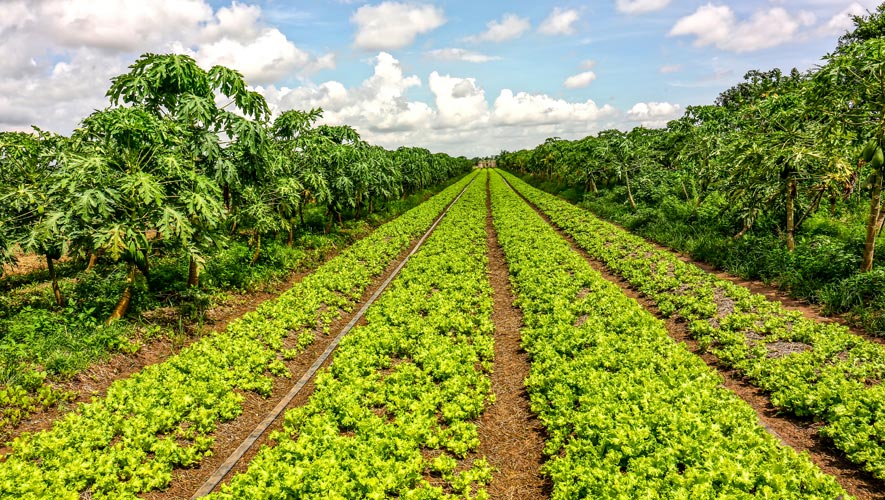Orders continue to increase but challenges faced by farmers may stand in the way of further expansion
For the latest Cambodian Business news, visit Khmer Times Business
Globally, it was a trend that took countries by storm.
The meticulous concern to be aware of what goes on to our plates has given rise to demand for organic produce.
Cambodia is equally experiencing the drive.
Organic food is food produced by methods that comply with some global standards of farming that disavow chemical pesticides and growth hormones, among other things.
While standards vary worldwide, organic farming features ecological balance and conserve biodiversity.
In the Kingdom, strong interest in organic farming has been observed among farmers and agricultural development projects.
The Ministry of Agriculture, Forestry and Fisheries has recently called on farmers to increase organic vegetable yields to meet demand from Phnom Penh’s supermarkets and restaurants. According to the Kandal province Department of Agriculture, it is expected to increase its supply of organic vegetables by 20 percent by the end of the year.
Last year the province recorded a supply of 134,000 kg of organic vegetables to local markets.
While dietary trends in Phnom Penh are slowly shifting focus towards healthier eating, eateries and organic farmers are facing increasing challenges along the way to comply with the rising demand. Challenges faced come in the form of cost, inconsistent quality as well as lack in supply chain stability among others.
According to The Cambodian Centre for Study and Development in Agriculture (Cedac), an organisation that supports local farming families and agricultural development projects, organic products are known to fetch 20 to 50 percent more than their non-organic counterparts in the market.
While this may allow farmers to earn more profit, restaurateurs and organic produce business owners are not exactly on the same page.
Soklim Srun, owner of ElevenOne Kitchen, voiced her concern on the rising cost and inconsistent quality in product supply during a recent event on clean energy hosted by the United Nations Development Programme (UNDP) Cambodia. The restaurant, notable for its Khmer and Western homemade food that is cooked with seasonal and local produce, faces problems in sourcing fresh local vegetables.
“In comparison with bigger organic businesses, farmers are able to provide organic produce at lower prices. However they are unable to comply with the big volumes needed by the restaurants,” Srun says.
She has to resort to getting organic produce for the restaurant through her staff, who come from different provinces, for instance rice from Kampong Chnnang.
Srun, who also engages in business with the Khmer Organic Co-operative, says while she is able to get the produce needed to comply with the restaurant’s changing menu, from time to time customers must bear the brunt of a pricier bill.
Quality of the produce seems to be an issue Srun faces from time to time because she says by the time the produce reaches her restaurants, located both in the Russian Market vicinity as well as in BKK 1, she sees a difference in quality.
Srun says her customers are quick enough to notice the difference in quality served to them, prompting her to urge farmers to prioritise it. She suggests that refrigerated transportation is able to make huge changes in terms of quality.
“Customers often don’t have the awareness on the importance and how organic products are produced,” Srun says referring to customers who are vocal about the price they pay for meals at an organic restaurant.
Khmer Organic Co-operative, a project that started four years ago, had initially started developing the cultivation of organic fruits and vegetables at two pilot farms. Since then, it has continued to promote organic vegetables and fruits for customers as well as equip farmers with knowledge and essential skills to grow organic produce on their own and work towards establishing a sustainable environment.
The organic produce-based organisation currently operates websites that sell organic produce weekly, including vegetables, fruits and herbs. However, they too face challenges in various forms. Khmer Organic Co-operatives, Business Development and Partnership Manager Noum Toum says the company faces challenges with suppliers, producers and wholesale retailers.
With regards to cost, he points out that input suppliers often point out the high price of electricity often contributes to a hike in product costs as well. This is a similar problem with producers and farmers as well.
High production costs as well as high transportation costs are also an issue, hence the imposition of higher prices on the products that are needed to cover the costs.
Toum also expresses the need for a more uniform price because there is no general market information in terms of price and demand. He stresses the need for retailers to be well-equipped with the knowledge of quality maintenance and food safety to prevent further inconsistencies in quality fluctuation.
In recent years, the private sector has also called on the government to speed up enacting the organic food law in order to provide product recognition. This is because people question the quality and safety of the food.
The sector believes that the law will help to gain the trust of customers as well as save organic producers from spending loads of money for international certification, which is usually deemed not necessary to sell their produce in the domestic market.
While it was announced the law has completed its draft stages, it is undergoing a review by the Ministry of Agriculture committee that has pointed out more time is needed to finalise the bill. Both the ministry and organic product organisations hope the bill will further promote and encourage organic farmers to be passionate about producing high-quality and safe food.
In terms of international certifications, organic farms that are deemed to qualify for export to the European Union (EU) market are granted an EU organic certificate. An organic farm at Picnic Resort owned by Khmer Organic Co-operatives was among the first in the country to have been certified as meeting EU standards.
Organic farms continue to pop up all over Cambodia despite the ever-growing challenges. Healthy eating often serves as a motivation to continue producing healthier and safer produce. However, observers claim more needs to be done to ease business production for the sector in order to widen access to organic produce in the country.




